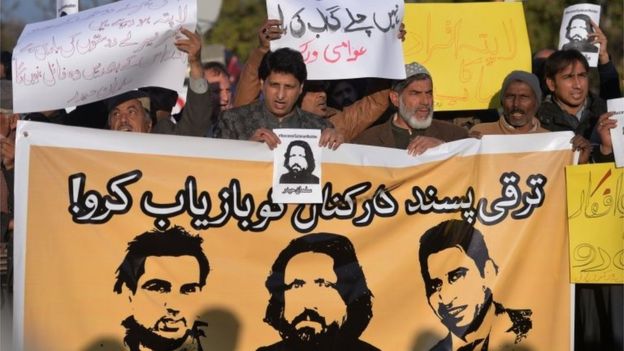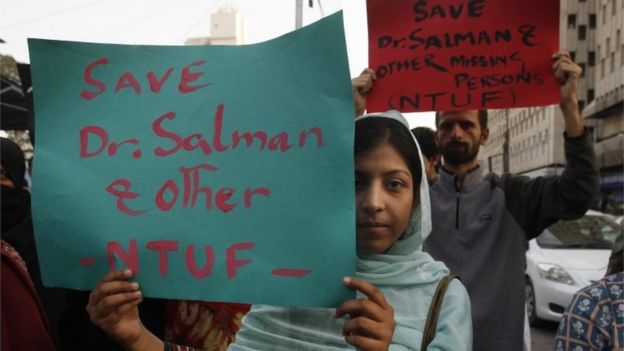IRFAN HUSAIN
- Blind Faith
I HAVE often wondered why the people of Pakistan put up with all the awful stuff they endure on a daily basis.
Why don’t they rise up in protest against the incompetence and corruption rampant in the country? The state provides virtually nothing in the way of basic education and health; 84pc of Pakistanis have no access to clean drinking water; and the populace is at constant risk from terrorists and criminals.
So why aren’t people out on the streets to demand decent governance? I suspect our bovine acceptance of whatever our leaders dish out is due largely to the fatalism that has long held the subcontinent in its iron grip.
When a child dies in a hospital due to a botched procedure or sloppy nursing, its parents console themselves by looking towards heaven, saying, “Allah ki marzi” or “It was God’s will”. Thus, rotten medical care remains the norm as doctors and nurses know their blunders will go unremarked on and unpunished.
By contrast, they would have been sued for similar professional malpractice in other countries.
This fatalistic attitude permeates society, allowing policymakers, politicians, bureaucrats, cops and professionals an easy way out whenever they fail in their duties, something they do with depressing frequency. And when there’s no price to pay for incompetence, there is little incentive for reform and improvement.
Our acceptance of whatever our leaders dish out is due to fatalism.
After all, if we ascribe all our misfortunes to the Maker, how can any human agency be blamed? How much easier to pass the buck to the very top than to accept personal responsibility for having goofed up. When a beggar asks for money to feed his six children, and you ask him why he has such a large family, the reply invariably is: “It was God’s will”.
When politicians visit those maimed in a terrorist attack in a hospital, they invariably invoke the Maker as consolation. This no-cost formula lets them off the hook as they pose for TV cameras. And, of course, nothing changes in the aftermath of successive deadly attacks as the public also puts the murder of loved ones down to Divine will, thereby absolving the government and its security agencies of any blame.
While stoicism helps us to bear pain and sorrow, fatalism reduces the sense of outrage that should accompany needless suffering. Thus, instead of calling a lawyer or launching a street protest after yet another disaster caused by personal or public incompetence, we seek solace by saying to ourselves that it was God’s will.
At the Battle of Lepanto in 1571, the Ottoman fleet was defeated by the Holy League. This was a key naval engagement, and the outcome signalled the end of the Ottoman push into the Mediterranean. The contemporary Ottoman chronicle of this hinge moment in history explained the defeat thus: “… the Imperial Fleet encountered the fleet of the wretched infidels and the will of God turned another way…”
So instead of analysing the reasons for this defeat when the Ottoman fleet outnumbered the opposing side, God’s will was cited as the cause. As a result, when replacement ships were being built, they incorporated the same weaknesses as the galleons that had been captured or sunk by the Holy Alliance.
When an oil tanker blew up in Gadani last November, killing and maiming scores of workers, the cause was clear: the owner of this vessel brought ashore to have its steel stripped off had allegedly smuggled in a certain amount of oil in the holds. The workers wielding oxy-acetylene cutting torches were unaware of this hazard, and set off the devastating blast.
Many officials and politicians turned up at the site of the disaster. The media criticised the administration for its failure to inspect the tanker, but at the end of the day, all concerned shook their heads and muttered: “Allah ki marzi.” The same thing happens with regularity in mines and factories across the country but, after each accident, nothing changes and it is business as usual.
This fatalism retards progress and lets the guilty off the hook. If only Divine action guides us, then clearly, mere humans cannot be held accountable for their errors of omission and commission.
By forgetting the maxim ‘God helps those who help themselves’, we have fallen into the trap set by ignorant clerics. In their worldview, everything is preordained, so we don’t control what happens to us and around us. The true purpose of life on earth is to prepare for the afterlife. If you are born poor and powerless, you will be compensated in the next life.
Until we take responsibility for our own actions, we will continue to languish at the bottom of the pile.







